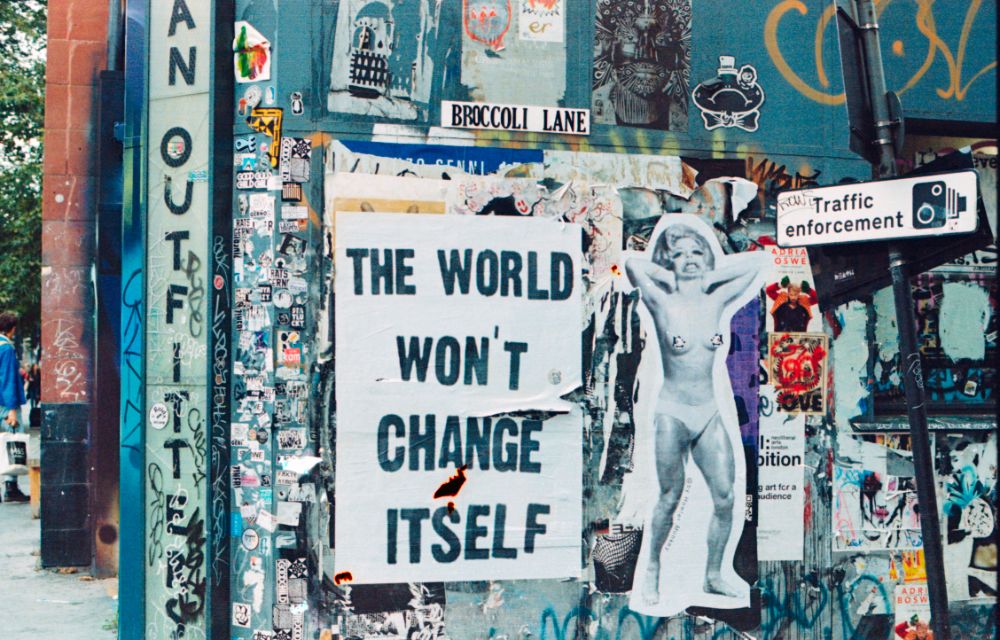An opinion piece by Adam Elsod, Head manager of Voicify.
Too little attention is given to the rights of migrants. Mainstream media would rarely mention them and only in case of emergencies and crises – as we saw recently in the dire events at the Polish and Belarussian border, or in the North Sea Channel-. While long-term inclusion of migrants in political activities is overlooked, building an inclusive Europe for all requires working consistently on both fields.
We count more than 22 million “third-country nationals” (citizens of non-EU countries) in the EU today (Eurostat 2020). Whilst they live and contribute in many ways to their societies, they are not politically represented. Their day to day lives are also impacted by policies, and laws made without their involvement or input.
If all these third-country nationals were in one country, it would be the 6th largest population size of the EU, larger than the Netherlands or Romania, and have the youngest population.
Would you imagine the Netherlands being excluded from EU decision-making?
The right to political participation
People with lived migration experiences, including young persons, see their right to freedom of peaceful assembly and association, as well as their right of freedom of expression being repeatedly ignored. These rights are fundamental, as they guarantee their full, and effective political participation. Given the interconnected and indivisible nature of human rights, these limitations further hinder their full enjoyment of other human rights. It prevents them from expressing their needs, and from striving for all their civil, political, social, cultural and economical rights.
Political participation can be defined as activities through which people develop and express their opinions on political affairs, and influence the decisions that affect their lives. Political participation is also key to ensure long-term inclusion of persons with live migration experiences within the societies they live in. It also guarantees the creation of effective, equitable and sustainable policies via ensuring responsibility-sharing between policy-makers, and civil society as a whole, including persons with migratory experiences.
Voicify, a European initiative striving for political participation of youth with lived migration experiences, conducted a consultation throughout Europe to identify the many barriers they face to access their rights. This is the first-ever EU-wide consultation of and by organisations led by youth with lived migration experiences.
This consultation represents organisations respectively active in Austria, Belgium, Denmark, France, Germany, Greece, Malta, the Netherlands, Spain and Sweden, representing and working with tens of thousands of YREMASUD (Young, Refugees, Exiled, Migrants, Asylum Seekers, and Undocumented).
The obstacles to political participation
Eurocentrism and white supremacy, nationalism, systemic racism and other forms of discrimination are the root causes of most challenges that both individuals and organisations face.They enforce two mainstream discourses on YREMASUD. A threat discourse that assimilates them to a “security risk”, from delinquency to terrorism. The other is a charity discourse: they would be considered as passive recipients of aid, and in perpetual need of help.
Both make it difficult for them to be considered as equal partners and relevant stakeholders when it comes to including them within policy processes. As well in civil society organisations, there is a widespread denial that these persons, and their organisations, are an integral part of Europe.
These dynamics contribute to trapping YREMASUD in vicious cycles of social and economic exclusion making it hard for them to access employment and housing. Such struggle for survival limits their ability to participate in civil society and in political life. Challenges are exacerbated when YREMASUD are racialized.
Participating organisations to the consultation reported a “shrinking space” for both civil society organisations and informal groups to register, and to operate, due to intentional discrimination from different authorities. For example, some organisations were exposed to disproportionate scrutiny by the banks, which resulted in closing of their organisations’ accounts. They also mentioned the inaccessibility to funding opportunities on migration or inclusion- as most public funding focus only on extremism and “de-radicalization”.
These constrained financial abilities keep them in vicious cycles, forcing them to run solely on volunteers. This prevents them from working consistently on long-term projects and growing.
As a consequence, it makes them less attractive for funding opportunities.
And now, how to ensure political participation for all?
Structuring, legitimising and institutionalising political participation of YREMASUD in the EU are the goals of Voicify. To guarantee the right to political participation, we must organise and build alliances of YREMASUD organisations.
There is now an urgent need for a change. Institutions and civil society organisations must change their approach, ensure access to funding and promote inclusive, representative, and democratic governance. YREMASUD and their organisations must also be recognised as an integral #PartofEurope.
In 2022, Voicify will create the first European umbrella organisation representing YREMASUD organisations. We call on all YREMASUD organisations to join forces in Voicify to work together, raise our voices and strive for our rights in the EU.
The full #PartofEurope report is accessible here. It also includes policy recommendations for institutions and civil society organisations.
About the author
Adam Elsod is an award-winning activist, educator, campaigner, and social entrepreneur.
He is a former member of the youth advisory council of the Council of Europe, a member of the pool of experts of the European Youth Forum, and a co-founder of The Young Republic (a migrant-led youth organisation). – He has advised institutions and organisations in more than 20 countries in the Middle East, North Africa and Europe.
